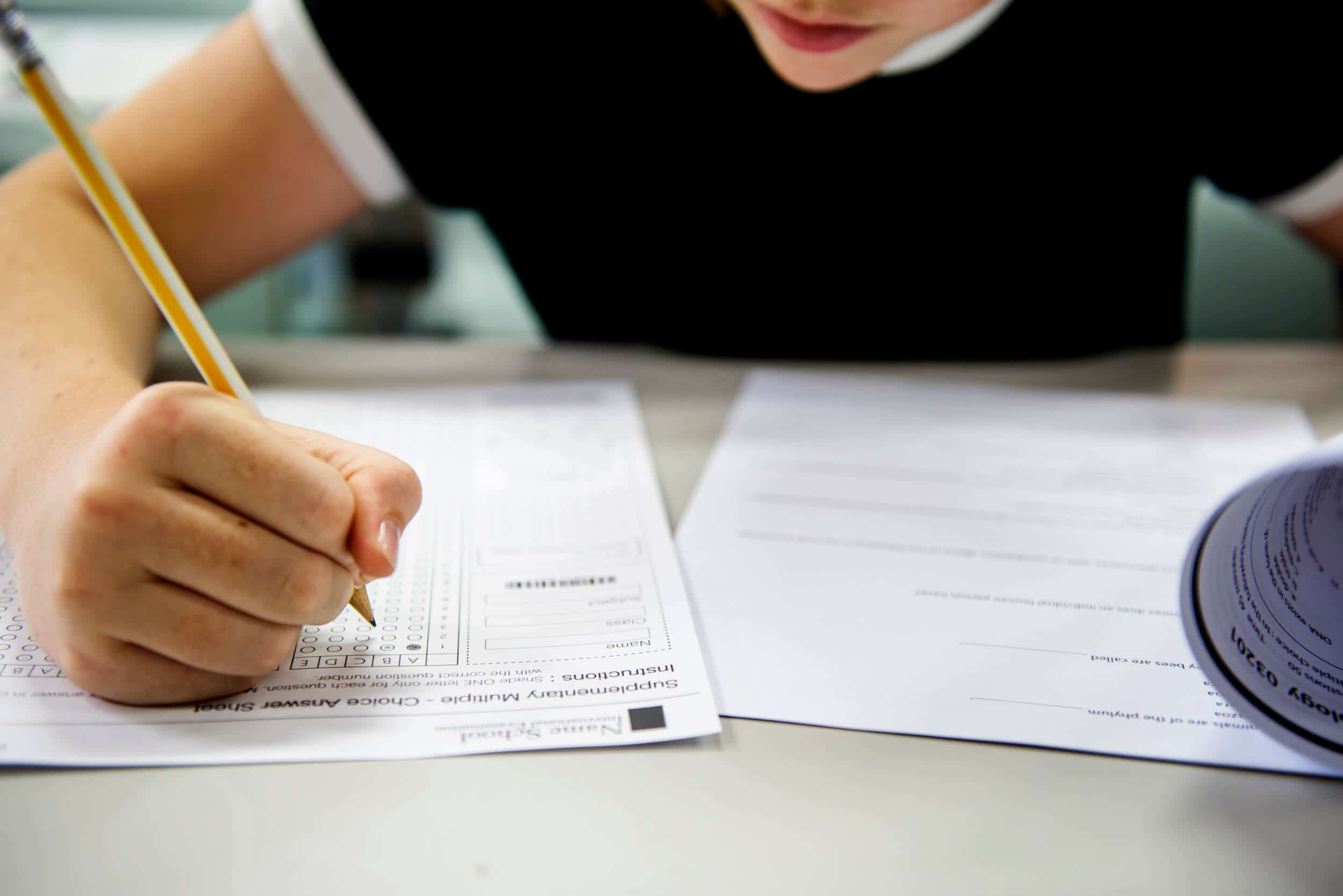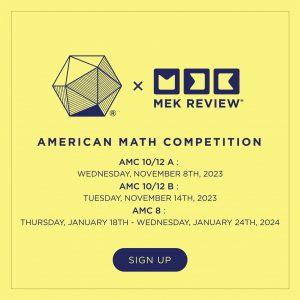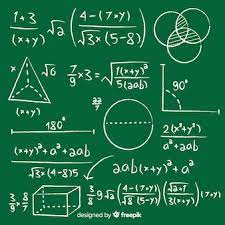
The #1 Tip to Prepare for Math Competitions
The #1 Tip to Prepare for Math Competitions!
 What’s a great way to engage Math lovers? MATH COMPETITIONS!
What’s a great way to engage Math lovers? MATH COMPETITIONS!
Every year, MEK hosts a series of Math Competitions designed to help students stretch their creative problem solving skills, build their academic resume, and even make new friends.
Especially for ambitious students who are bored in their regular math classes, Math Competitions present an opportunity to practice abstract thinking skills and get away from the rote memorization and simple math concepts of traditional school curriculum.
We sat down with expert Math Instructor and Assistant Director of Subject Prep, Nicholas Lang, to discuss the benefits of Math Competitions, how to get involved, and the MEK programs that help students prepare!
Benefits of Math Competitions

Interviewer: What are the benefits of Math Competitions for students?
Lang: Math competitions give students the opportunity to use their abstract and creative thinking skills to solve problems in a way they won’t get within their standard school curriculum. One problem might have eight different solutions. There’s no one “right” way to get to the correct answer, and thinking about different approaches and creative solutions to a problem is half the fun!
Interviewer: What skills are assessed?
Lang: It’s important for students to come into Math Competitions understanding the basic fundamentals and core topics of math concepts, such as Pre-Algebra, Algebra, Arithmetic, Geometry, Logic, Number Theory, and Probability. Aside from those skills, students should be able to break down and understand a problem.
First time Math Competition participants are basically assessed on how well they understand the core of what a problem is asking of them and find the creative solution.
Who Should Participate

Interviewer: Who is a good fit for Math Competitions?
Lang: Ambitious students who have a passion to rise above and beyond their current math level and experience are a great fit. Also, any student who enjoys math, wants to improve their math skills, or wants a challenge would enjoy participating in Math Competitions. It’s a fun opportunity for students looking to incorporate their math interests into the day beyond the classroom.
Types of Math Competitions
Interviewer: What kind of Math Competitions are available?
Lang: There are competitions for every level and age range. The American Math Competition 8 (AMC 8), hosted at MEK Review, is targeted toward students in grades 6 through 8.
There are also national competitions that students must qualify for in order to gain entry.
The American Math Competition (AMC)

Interviewer: What is the American Math Competition?
Lang: AMC is the largest annual Math Competition in the U.S. hosted by the Math Association of America.
AMC has a variety of Math Competitions for different grade-levels:
- AMC 8 – For students up to Grade 8
- AMC 10 – For students up to Grade 10
- AMC 12 – For students up to Grade 12
AMC is a great first step for students starting out. The registration process is simple, and anyone can sign up.
Interviewer: Does AMC 8 differ from other Math Competitions? If so, how?
Lang: Aside from AMC, there are other Math Competitions, such as Math Kangaroo and the Continental Math League, also hosted at MEK, that are fundamentally similar. We see a lot of overlap between the core concepts assessed in each of these competitions.
However, there are other Math Competitions, like the American Invitational Math Event (AIME), that are much harder and require students to qualify in order to participate. Students in the top percentile of AIME participants receive invitations to other Math Competitions. There are also Math Competitions that have grade level cut-offs.
Top Tips: Preparing for Math Competitions

Interviewer: How can students prepare for Math Competitions?
Lang: Practice makes perfect. There isn’t one way to perfectly prepare. However, we suggest that students take a look at previous competitions, study how the questions are phrased, and analyze what solution methods are possible for each problem. If you’ve seen enough AMC questions, you get a good sense of the scope of what could be asked.
Having a good foundation of counting principles and problem solving strategies is also helpful, especially for AMC 8, where students can use more generic problem solving skills. Once students get to AMC 10, they need to understand bigger problem solving theorems and the language of problem solving strategies.
At MEK, we give students practice tests and show them the recurring themes and question types they might encounter.
MEK Courses

Interviewer: What kind of classes does MEK have to prepare students for Math Competitions?
Lang: MEK has a classes specifically for Math Competitions called Mr. Ahn’s Perfect Circle (MAPC) and AMC 8.
The AMC 8 curriculum specifically prepares students for the AMC event, whereas MAPC is overall Math Competition practice.
During the AMC course, students learn time management strategies and efficiency. We want to give students the skills to answer problems in the fastest way possible, so they have time to complete the tougher questions at the end.
There are 25 questions during the AMC, with the last 10 questions being the hardest. Some days during class, we focus on the first 15 questions, which are slightly easier, while some days we focus on the final 10 questions to practice best strategies for problem solving.
MAPC and AMC 8 are great for students who want to go the extra mile or who are looking for an exciting challenge.
How to Get Involved

Interviewer: Any advice for students looking to get involved in Math Competitions?
Lang: The first step is to look for your nearest AMC hosting center. Most schools host Math Competitions, as do some tutoring centers like MEK, which hosts the AMC, Math Kangaroo, and Continental Math League.
Next, get your hands on old tests and problems. These tests are free to access and easy to find online.
Then, solve the problems. The best way to practice aside from guided instruction is to sit with the problems (don’t look at the answers before you solve them!) and work through them independently.
Once you’ve completed your practice, analyze the questions and your work. Look at the level of difficulty of each problem. Find other ways people solve the problems to see which ways work for you.
Final Thoughts & Advice
Interviewer: Any advice for students currently preparing to compete?
Lang: Practice, practice, practice! There are 25 plus years of practice tests available online for free. Find the most difficult questions from previous exams and work your way through the problems.
If you’re comfortable with the first 15 questions but only get 4 of the last 10 right, that still puts you in a good place for competing! Make sure you’re analyzing the problems, reflecting on your work, and catching on to trends and patterns.
Watch for Upcoming Math Events
Every Year, MEK is proud to host a series of Math Competitions at our Closter Campus. Among them are:
- AMC 8 – (Dates TBD)
- AMC 10 – Hosting this November (2024)
- Math Kangaroo – (Dates TBD)
- Mr. Ahn’s Perfect Circle is our Summer Competition Math Course – See MEK’s Summer Course Catalog to join.
Expert instructor Nicholas Lang teaches strategies and skills to perform in the top percentile of Math Competition participants. Join our fun, dynamic learning community.
You can contact us today to learn more and schedule an academic evaluation to find the best MEK math program for your child!
We look forward to hearing from you!



